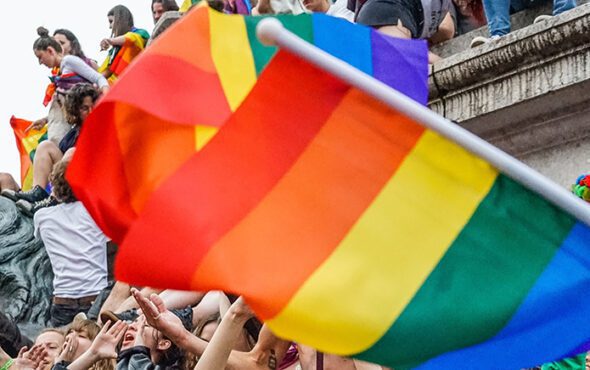
A move to decriminalise gay sex in the Cook Islands is a welcome step but LGBTQ+ people in the Pacific Islands region still lack basic rights and risk discrimination – or worse – at every turn, activists say.
Lawmakers in the tiny island nation of 15,000 people passed a bill on April 14 to decriminalise same-sex sexual relations, a crime punishable by up to seven years in prison, although the law was rarely, if ever, enforced.
The measure is expected to become law on June 1.
Announcing his support for the change in parliament, Prime Minister Mark Brown said the law outlawing homosexual activity – a vestige of British colonial rule – was “a discriminatory and unjust law that goes against our constitution and our values as a nation”.
“We have freedom to love who we want to,” he said.
Activists had campaigned for change for more than a decade and the long-awaited parliamentary vote caused “elation”, said Karla Eggleton, who leads Pride Cook Islands, an LGBTQ+ group.
“There were lots of tears, lots of hugging,” Eggleton told Openly by phone from Rarotonga, the country’s main island.
But she said the change marked the start of a bigger fight in the Cook Islands, where same-sex couples lack legal recognition and adoption rights, and transgender people cannot legally change gender.
Sodomy laws
The Cook Islands follows other Pacific Island nations in wiping colonial-era sodomy laws from the statutes. The Marshall Islands was first to act in 2005, Fiji followed in 2010, Palau in 2014 then Nauru in 2016.
But in other parts of the vast Pacific Islands region, which is home to about 12 million people, bans remain in place.
In Kiribati, Niue, Papua New Guinea, Samoa, Tonga and Tuvalu, male homosexual acts are illegal and punishable by up to 14 years in prison. In the Solomon Islands, same-sex sexual relations are outlawed for both men and women.
While rarely enforced, the bans uphold a widespread prejudice against LGBTQ+ people, said Taufu’i ‘Ae Valu Naufahu, an activist who is Tonga’s first openly gay lawyer.
In 2021, a man was sentenced to life in prison for the murder of Polikalepo Kefu, a leading figure in Tonga’s LGBTQ+ community, in what Naufahu called a “hate crime”.
“Some of our young ones come to us seeking our assistance because they are being abused at home and in the community,” Naufahu, 33, said by phone from the Tongan capital, Nuku’alofa.
Gender minorities
About 600 km (370 miles) east of Tonga lies Niue, an island nation home to about 1,500 people where same-sex sexual relations between men are also illegal.
Phylesha Brown-Acton, a 47-year-old from Niue who identifies as fakafifine – a local term for people assigned male at birth who live as women – said the Cook Islands’ vote could inspire hope among gender and sexual minorities elsewhere in the region.
“I never thought the Cooks Islands would decriminalise homosexuality. I hope in my lifetime we’ll see an advancement in Niue,” Brown-Acton said, adding that hurdles remain.
She said she feared “conservative factions” may be out to change the country’s tradition of accepting fakafifine people.
“We’re starting to see the rise of Evangelical churches setting themselves up even more throughout the Pacific,” she said by phone from New Zealand, where she and many fellow Niue islanders live.
“Our religious leaders are coming down a lot harder (on LGBTQ+ people),” she added, citing two cases where LGBTQ+ Pacific islanders were refused entry to church shelters during floods due to their gender identity or sexuality.
But despite concerns about lingering discrimination and anti-LGBTQ+ laws in her homeland, Brown-Acton said she hoped to move back to her ancestral village when she retires.
In Tonga, Naufahu said society had undergone “major changes” in recent years, with further progress likely on LGBTQ+ acceptance.
“The way I see it, the Pacific has already started moving towards it. Sooner or later, we will get there,” Naufahu said.
Reporting by Seb Starcevic.
GAY TIMES and Openly/Thomson Reuters Foundation are working together to deliver leading LGBTQ+ news to a global audience.



